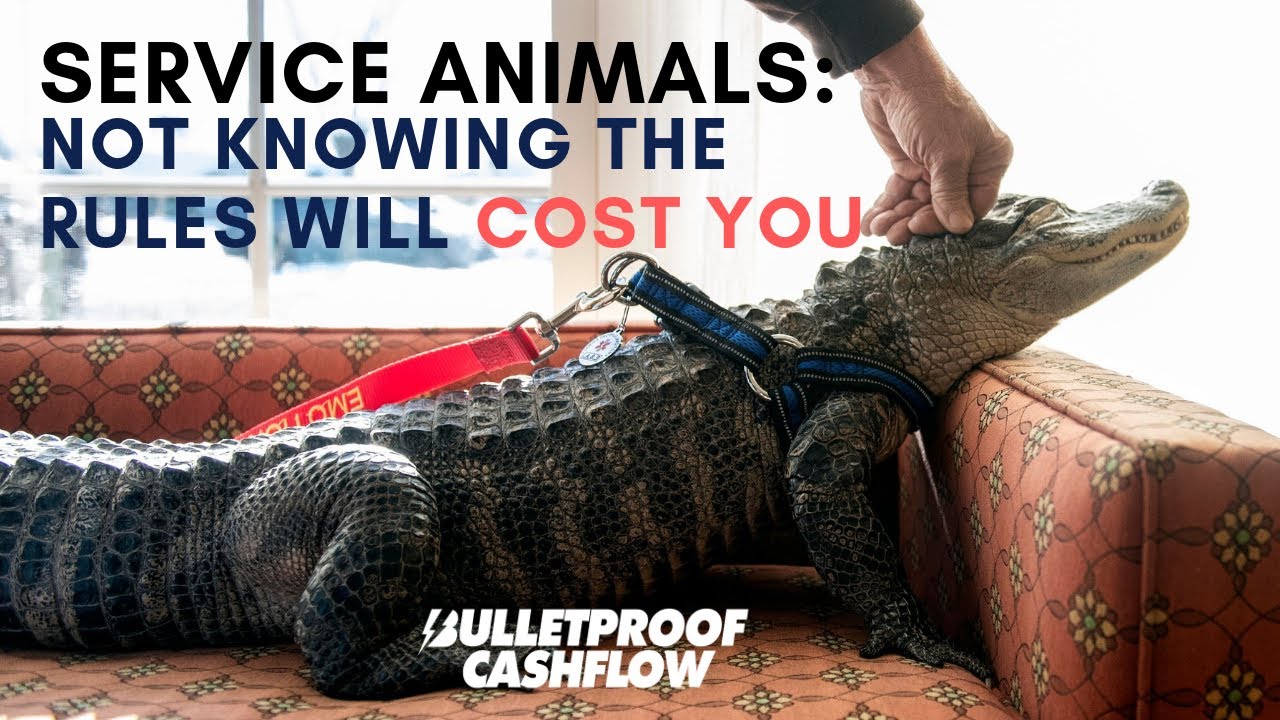Premium Only Content

Service Animals: Not Knowing the Rules Will Cost You
For many families and individuals, pets are more than just companions. They are an extension of the family. Many multifamily owners and landlords recognize this and have shifted to more of a “pet-friendly” model. For other owners, they do not want pets in their units as they may cause damage or bother the other tenants. Prospective tenants will bring their pets along saying they are companion animals, leaving owners and landlords worried about fair housing issues if they don’t accept the animal in the unit. These days, it is now more important than ever to understand the fair housing rules around service and assistance animals and the potential problems for operators if they do not comply.
Not understanding the differences could result in you inadvertently discriminating a person with a disability and, in turn, violate the Americans with Disabilities Act (ADA). Here is the long and short of it: The rule states that people with disabilities have the same rights to housing as those without disabilities. As an owner or operator, it is illegal to deny housing to someone because they have a mental or physical disability. Before we go into the problems you can face as an owner or operator, let’s go into the two primary scenarios you could be faced with: service animals and assistance animals.
As I mentioned, service animals are covered by the Americans with Disabilities Act (ADA). A service animal is defined in the ADA as primarily a dog that perform tasks for a person with a disability. The tasks performed by the dog must be directly related to that person's disability. The important thing to note here is that there is no proof required by the tenant that the dog has been trained or even registered with the government. You are not allowed to set up designated units for tenants with service animals out of consideration for other tenants as they need to have the same opportunity to be in any units for people without disabilities. This means no “pet-friendly” units. You are also not allowed to charge pet rent or fees. Like I said before, it is illegal for you to deny housing - even if you have a “no pet” rule - to someone that has a service animal.
Assistance animals are a little different. They are not covered by the ADA. Rather, they are covered by the Fair Housing Act (FHAct). An assistance animal may be a service animal, for someone that needs emotional support and alleviate their disability.
Unlike the ADA that limits service animals to dogs, an assistance animal can be just about any animal within reason. There have been people that say that their alligator, skunks, and donkeys are assistance animals. It’s also worth noting that there is no restriction on dog breeds. Like the ADA, assistance animals do not need to be trained as they may be helping that person cope with a condition like anxiety.
Any potential tenant that does not have an obvious disability and is seeking to have their assistance animal in the unit would make a formal request for accommodation. You are able to ask the person two questions regarding their request: if they have a disability and if there is a need for the animal. If your attorney determines that an accommodation request for an assistance animal is legitimate, then it cannot be treated as a pet. This means you cannot charge a pet deposit or pet rent.
Now, you think a new or existing tenant may be trying to get around your no pet rule and pet fees. What do you do when they say they want an accommodation but they don’t appear to have a disability? To avoid trouble, you need to follow the HUD guidelines.
You need to push back on the tenant and request a doctor's verification in writing of the tenant’s disability and whether the animal is needed because of the disability. The letter should confirm that a disability been established and that the animal is needed for the person to cope or serve as treatment of that disability. To limit your risk, use a third-party assistance animal validation provider. There are several on the Internet and are little to no cost for you.
It’s worth noting that if you live on the property and you or a member of your family has an allergy to the animal, it may be possible to deny the service animal. Also, if the service or assistance animal shows aggression toward anyone, you can possibly deny that dog in your rental as well. It can’t be based on the breed or the size of the dog. It must be factual. Before you take that on either case, be sure to talk to your attorney and come up with an execution plan. When you are dealing with Federal law, you want to be careful.
Anyway, how do you stay in compliance when tenants ask about service animals? How do you mitigate your risk today? Let me know in the comments. I’d love to hear from you.
-
 1:21
1:21
tenchi
4 years agoKnowing her Animals
48 -
 13:14
13:14
lawschoolthruaservicedogseyes
4 years agoService Dog: New DOT Rules for Service Animals on Airplanes are Discriminatory!
45 -
 0:14
0:14
KTNV
4 years agoDogs are now the only service animals allowed on planes
18 -
 0:25
0:25
Newsy
4 years agoTransportation Department Issues New Rules For Animals On Planes
7681 -
 1:22
1:22
KJRH
4 years agoNew Tulsa Transit service rules in effect
7 -
 0:15
0:15
axel12
4 years agoEven animals follow the rules "Wash your hands"
61 -
 0:15
0:15
CannaWerks
4 years agoLetting animals werk for you
14 -
 3:00:14
3:00:14
vivafrei
18 hours agoEp. 248: "Bitcoin Jesus" Begs Trump! Rekieta Gets Plea Deal! Pardons, Deportations, Bird Flu & MORE!
197K214 -
 3:44:06
3:44:06
Rising Rhino
17 hours ago $13.83 earnedWashington Commanders Vs Philadelphia Eagles: NFL NFC Championship LIVE Watch Party
93.3K4 -
 13:00
13:00
Exploring With Nug
11 hours ago $7.04 earnedHe Went To Get A Haircut And Vanished WIthout a Trace!
75.5K3